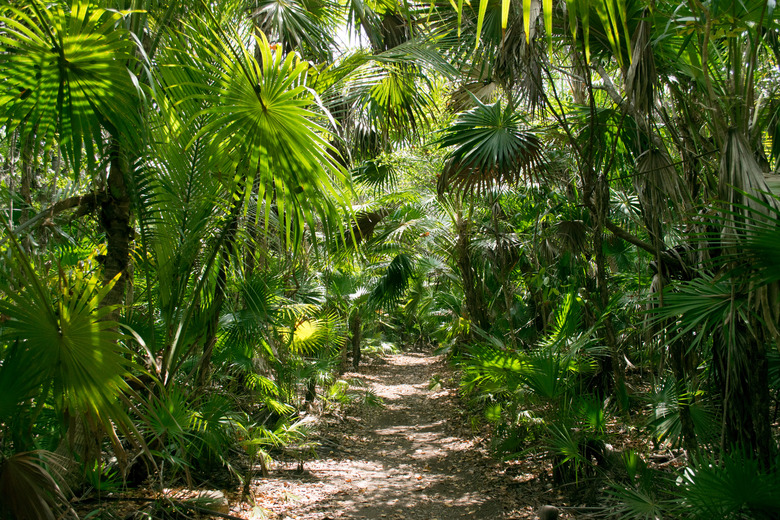Tropical Rainforest Plants For Kids
Tropical Rainforests are rich habitats for plants. More than two-thirds of the world's plant species are found here. Tropical rainforests are hot and humid. These characteristic climatic conditions are responsible for the presence of distinct and diverse vegetation of this region. The plants of the tropical rainforests are divided into different layers, which are home to diverse species of animals.
Emergent
Emergent
The emergent trees are the giant trees that tower high and reach heights of 115 to 230 feet. They have massive trunks more than 7 feet. To support these trunks, they grow buttresses that can spread out to a distance of 30 feet. The emergents are widely spaced and have umbrella-shaped tops. These trees are exposed to dry winds because of their height. In consequence, they have small, pointed leaves. The wind helps the dispersion of seeds. An example of an emergent is the kapok tree.
Canopy
Canopy
These are closely spaced trees, which grow to a height 70 to 100 feet. They have dense, leafy crowns or tops. As a result these trees do not allow much sunlight to pass through to the layers below. Flowers and fruits are abundant in the canopies. The trees of this layer depend on animals for dispersal of seeds.
Epiphytes are plants that grow in large numbers on canopy. These plants grow on the host, but unlike a parasite, take no nutrients from the tree on which it grows. The most commonly found epiphytes in the canopy are several species of orchids.
The Understory
The Understory
The next level is the understory. These are the plants which are about 30 to 50 feet tall. The plants that grow here have very large leaves in order to collect as much as light possible. The flowers that grow here are brightly colored and have strong scents so that they can attract insects, birds and bats in the dim light. Several species of palm grow in this layer. Lianas (woody vines) are abundant in the understory. These are climbing plants which use the tree trunks to look for a way up to the light.
Shrub Layer
Shrub Layer
The shrub layer is very dense. Shrubs, ferns and other plants that need less light grow here. Saplings of emergents and canopy trees are also found here.
Ground Layer
Ground Layer
The ground layer is the forest floor. This layer is devoid of sunlight. Consequently, the vegetation mainly consists of fungi and other plants that can manage to survive under such conditions.
References
- "Encyclopedia of Rainforests"; Diane Jukofsky; 2002
- "Habitats: Tropical Rainforests"; Robert Snedden; 2005
Cite This Article
MLA
Sen, Debashree. "Tropical Rainforest Plants For Kids" sciencing.com, https://www.sciencing.com/list-6301096-tropical-rainforest-plants-kids/. 22 November 2019.
APA
Sen, Debashree. (2019, November 22). Tropical Rainforest Plants For Kids. sciencing.com. Retrieved from https://www.sciencing.com/list-6301096-tropical-rainforest-plants-kids/
Chicago
Sen, Debashree. Tropical Rainforest Plants For Kids last modified March 24, 2022. https://www.sciencing.com/list-6301096-tropical-rainforest-plants-kids/
